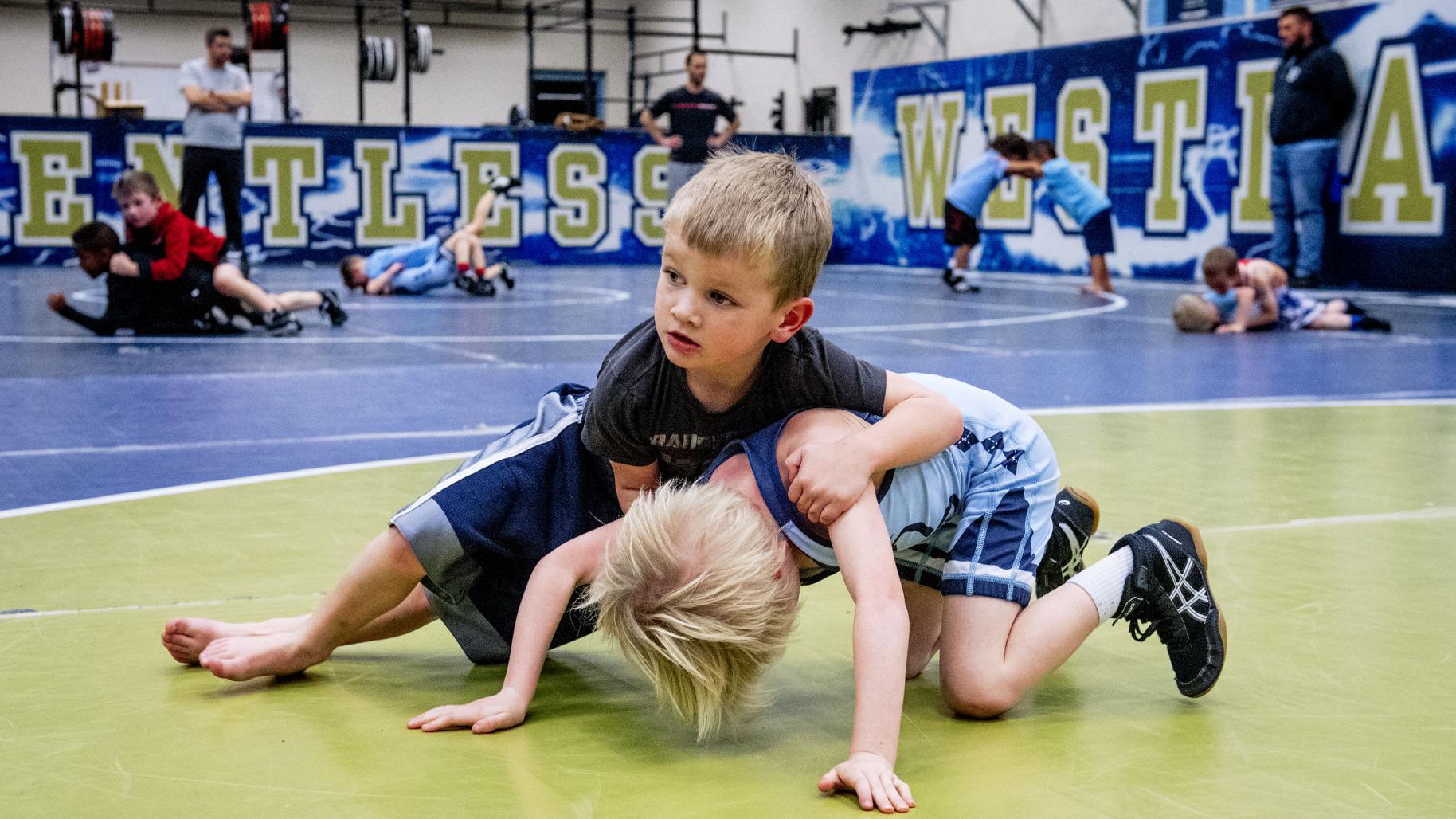
When my son was eight years old, he told me he wanted to wrestle. At the time, we lived in a fiercely competitive wrestling town east of the mountains—one of those places where kids are practically born wearing singlets.
Unfortunately, I missed the sign-ups that year, so he joined late. By the time his first meet rolled around, he’d only had two practices under his belt. He had exceptional coaches, but very little experience—he knew just a few basic takedowns and counters. I’ve always tried to raise my kids to be tough and resilient, but I’ll admit, I was scared. My head filled with all the usual fears: What if he got hurt? What if he got humiliated? What if it crushed his confidence before he even got started?
Still, we showed up.
That Saturday morning, we stood in line for pairings. My son was matched with an opponent for his first-ever wrestling match—a boy who looked like an eight-year-old Navy SEAL. I found out later he’d been wrestling since he was four and had more than 100 matches under his belt. “This can’t be fair,” I muttered. But before I could say anything, the referee blew the whistle. It was go time.
The other boy’s father rushed over and shouted, “Kill him! You understand me? Kill him!”
“Yes, sir!” the boy yelled back, loud enough to shake the gym.
The ankle bands went on. The whistle blew again.
And just like that, my son was double-legged to the ground. They rolled around the mat like two feral cats. My son got back to his feet for a moment—until his opponent hoisted him over his head and slammed him to the mat. Our coach called out for a penalty—unnecessary roughness—but the ref ignored it. The match continued.
Time slowed. One minute felt like ten years. I sat there thinking, My son’s going to get destroyed. What was I thinking?
Through three brutal rounds, the other boy pummeled him, choked him, and tossed him across the mat. I could see the tears streaming down my son’s face, and it broke me. I felt like the worst father in the world. What kind of parent puts their kid in a position like this?
And then something shifted. As I watched, I remembered what it felt like to be the underdog. To be outmatched. To have no one step in to save me. I remembered how failure, even when it stings, shaped me. How I learned from it. How it gave me strength.
Eventually, the match ended. My son had never been pinned—and incredibly, he only lost by one point.
And then something even more surprising happened: the other boy started crying. He’d won, but his father was furious he hadn’t done better. My heart broke for him, too.
My son was rattled. Shaken. Angry about the chokeholds. Frustrated the ref hadn’t stepped in. His mom sat with him and gently explained that life can be unfair—painfully unfair—and sometimes, justice doesn’t show up when it should. She told him he had every right to quit, but if he did, he’d have to tell his coach himself.
He sat quietly for a minute, the dried tears still on his cheeks. Then he said something I’ll never forget:
“I don’t want to quit. That was my first match. I want to keep going.”
So he did.
He went on to wrestle two more matches that day—and won both by pinning his opponents. Wrestling became his passion, and he won many more times that season. But more importantly, he learned something bigger than how to win. He learned how to lose, how to endure, and how to rise.
Failure, if we let it, can be the greatest teacher. Not just for us, but for our kids.
So if you want your children to grow up resilient, strong, and empathetic—don’t always protect them from the hard stuff. Don’t stand in their way. Let them try. Let them stumble.
Let them fail.
